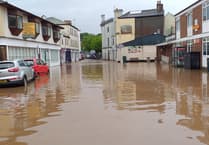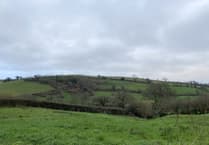The South Western Ambulance Service NHS Foundation Trust (SWASFT) is encouraging people to use the right healthcare service this Easter Bank Holiday weekend, as the region prepares for the start of the holiday season.
Residents and tourists are being reminded to only dial 999 in a life-threatening emergency.
Bank Holiday weekends can be a busy time for 999 services, especially when the weather is warm and people are out enjoying the sun – whether in the garden, doing DIY at home, visiting family and friends or exploring the region’s beauty spots.
Ahead of the Easter weekend, the advice is to:
Continue to call 999 in emergency and life-threatening cases - when someone is seriously ill or injured, or their life is at risk.
Visit NHS 111 online for non-life-threatening medical help or advice.
Make sure you have ordered and collected any repeat medicines.
Make use of community pharmacies, which can advise on minor illnesses and provide medications.
Visitors are reminded that their first point of call for GP care is their home practice, who will be able to provide online, phone and video consultations as well as arranging for prescriptions to be sent to a pharmacy of their choose.
Will Warrender, Chief Executive of the South Western Ambulance Service NHS Foundation Trust, said: “To ensure we can be there for everyone that needs us in a medical emergency, we’re asking you to help us to help you, by choosing the right care for you. Please only call 999 in a life-threatening emergency, this will ensure we have crews available for patients with the most life-threatening conditions.
“I would also like to thank our people and NHS colleagues who will be working over the Bank Holiday weekend to help keep us all safe and well. Should you need their support, please be kind to them, they are working hard under huge pressures currently.”
People are also asked not call 999 back for an estimated arrival time of an ambulance. They should only call back if the patient’s condition worsens or they no longer need an ambulance. This helps keep phone lines free for others in need.
Self-care – for things like grazed knees, coughs and colds.
Pharmacy – visit your local pharmacy for headaches, upset stomachs, aches and pains.
NHS 111 – visit online or call 111 for advice and support 24 hours a day, seven days a week.
GP – call your GP for symptoms that won’t go away
Minor injuries unit – attend your local minor injuries unit for urgent non-life-threatening conditions and injuries such as sprains, fractures and burns.
999 – call 999 for life-threatening emergencies such as cardiac arrest, loss of consciousness, fits that aren’t stopping, chest pain, breathing difficulties, severe bleeding, severe allergic reactions, suspected stroke and serious head injuries.




